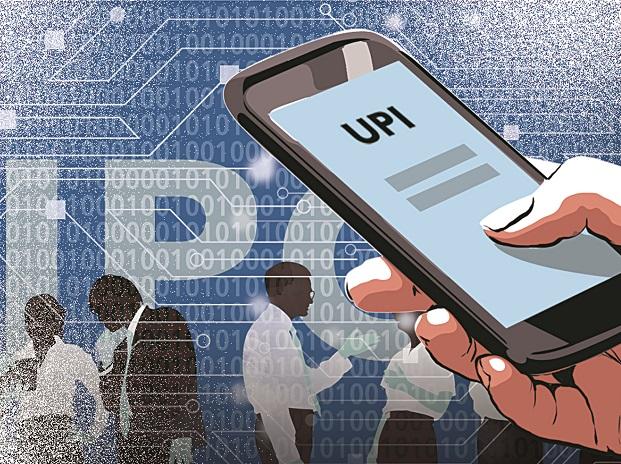[ad_1]
There is a possibility that fees levied on credit card transactions may eventually come down, either through central bank intervention or otherwise. And the reintroduction of charges on Unified Payments Interface (UPI) may, perhaps, offset the impact of fee reduction in cards for banks, industry participants said.
That said, the Reserve Bank of India (RBI) has not taken any stance now so the overhang on merchant discount rate (MDR) would continue till the time it comes out with final guidelines, they said.
MDR is the rate charged to a merchant for payment processing services on various payment instruments.
The RBI’s discussion paper on charges in payment systems, released on Wednesday, seeks to structure its policies and streamline the framework of charges for different payment services or activities, such as UPI, Immediate Payment Service (IMPS), NEFT (National Electronic Funds Transfer), RTGS (Real-Time Gross Settlement), and payment instruments including debit cards, credit cards, and prepaid payment instruments (PPIs).
The RBI has sought feedback from stakeholders before October 3 on the possibility of imposing a “tiered” charge on payments made through the UPI based on different amount bands. If UPI transactions are charged, then should MDR be imposed based on the transaction value or should a fixed amount be charged as MDR irrespective of the transaction value? It has also sought feedback on whether the RBI should decide on the charges, or the market be allowed to determine if charges are introduced at all.
“The industry participants have been looking forward to reintroduction of charges on UPI because there is a cost attached to undertake such transactions,” said Mihir Gandhi, partner and leader (payments transformation), PwC India.
“If charges are brought in, it will be good for the industry and help banks build better infrastructure for the burgeoning volumes. From the long-term perspective, it is the right thing to do because a service cannot be offered for free forever. Initially, the RBI and NPCI may have to set some ground rules regarding the pricing structure,” Gandhi said.
Jaikrishnan G, partner (financial services consulting) at Grant Thornton Bharat, said charges on UPI transactions were inevitable. “It would be ideal for the RBI to introduce an upper cap on this from a consumer protection perspective but not regulate the pricing as such. The market will determine the right price through healthy competition and customer appetite eventually across different segments and types of payments.”
Currently, no cost is incurred by users or merchants in case of payments made through UPI. However, collectively, the stakeholders incur Rs 2 for processing a UPI-P2M transaction, with an average transaction value of Rs 2. Experts have cautioned that there could be some impact on the volume of UPI transactions if any charges are introduced.
Vishwas Patel, chairman of Payments Council of India (PCI), said: “…pricing of financial instruments could be left up to market forces to continue to support the required investments and innovation in digital payments.”
He said the growth in digital payments had largely been driven by the payment aggregators. They have suffered a collective loss of over Rs 25,000 crore in the past four years in promoting and popularising digital payments, especially UPI and installing PoS terminals and QR codes across the country. Despite the central government providing Rs 1,500 crore towards reimbursement of charges for RuPay debit card and UPI transactions, no money has come to the payment aggregators.
The RBI has not issued any regulatory mandate or intervened on MDR on credit cards, but has sought feedback from stakeholders. Nowhere in the world has any central bank intervened in regulating the MDR/ interchange fee charged on credit transactions.
“There are many considerations to be thought of like cost of funds to the card issuing bank, the cost of plastic cards issuance with NFC and other security protocols, the NPA on non-recovery of amounts from card holders, etc. As an industry body, PCI will discuss, debate, and provide detailed feedback to the RBI within the requested time frame,” Patel said.
The RBI has suggested a formula to regulate MDR on credit cards. MDR of credit card transactions is equal to that for debit card transactions (first cost), plus average rate for 30 days’ credit of few large banks (second cost) considering that a customer gets an average 30-day free credit period on a credit card transaction.
“…the formula suggested by the RBI should keep MDR at >1.2-2 per cent v/s ≥2 per cent now. Our rough workings suggest that a 10-basis point reduction in MDR/interchange fee could shave off card business RoA by at least 50 bps,” said Emkay Research in a note on Thursday.
“Our quick discussions with card players suggest that the RBI may either leave MDR on credit cards/wallets being determined by the market or may nudge players to slightly bring down the interchange fees. That said, re-introduction of MDR on UPI should partly offset the impact of fee reduction in cards for banks/wallets for fintechs but not for non-bank card companies (like SBI Cards), unless they engage in UPI transactions,” it said. Shares of SBI Cards plunged 4.34 per cent on Thursday to Rs 957.60 on the Sensex following the discussion paper released by RBI on charges in payment systems.
Kotak Institutional Equities in a research note said the RBI paper was largely silent on reward points.
Suresh Ganapathy, associate director of Macquarie Capital, said the transaction charges must be brought down for customers (individuals as well as merchants) eventually and the cost would have to be borne by banks, fintechs, NBFCs, payment aggregators, and service providers. “Banks still can digest the impact better as they have always used payments as an acquisition engine and never made much money. The key challenge would be for various other intermediaries who do not have the balance sheet to leverage on the customers acquired,” Ganapathy said.
[ad_2]
Source link



